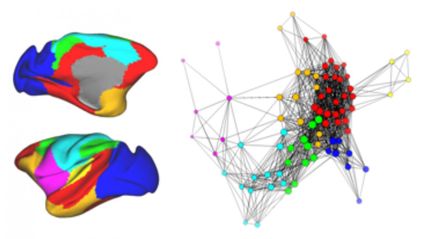New research sheds light on the role of proteins and how synapses work
synapses are the power junctions that allow living creatures to function. Popularly associated with learning and memory, they play a more fundamental role in our existence by regulating everything from breathing, sleeping and waking and other bodily functions.
Loss of synapses and synapse function sit at the heart of a number of diseases, not just neurodegenerative examples such as dementia and Parkinson's disease but also conditions such as diabetes. We do not fully understand how synapses work, but new research published in Nature Neuroscience has shed new light on the role of proteins in the way in which synapses maintain their signalling.
The research has been carried out by an international team of scientists from: the Institute for Biology/Genetics and the Institute of Chemistry and Biochemisty/Structural Biochemistry, Freie Universität Berlin; NeuroCure, Cluster of Excellence, Charité Universitätsmedizin, Berlin; Molecular and Theoretical Neuroscience, Leibniz-Institut für Molekulare Pharmakologie, Berlin; Department of Nanobiophotonics, Max Planck Institute for Biophysical Chemistry, Göttingen; Plymouth University Peninsula Schools of Medicine and Dentistry; the Department of Genetics, University of Cambridge, and; the Institute of Pharmaceutical Sciences, Pharmaceutical Chemistry, University of Graz, Austria.
The team used genetics like a scalpel blade to remove individual proteins from the synapse to identify their different roles within the synapse, and how they maintain synaptic transmission. They used synapses from the fruit fly drosophila, which compares remarkably closely to synapses in humans.
The results showed that two variations of a protein called Unc13 work separately to regulate synaptic transmission. The study is the first to show how the different forms of this protein work.
The findings of the study will prove invaluable to other research studies examining the role of synapse function in the diagnosis and treatment of neurodegenerative and other diseases. A greater understanding of how synapses work may also find a role in identifying unexpected drug targets for specific diseases.
Dr. Iain Robinson, Associate Professor in Neurosciences at Plymouth University Peninsula Schools of Medicine and Dentistry is part of the international research team on this study. He said: "Using a combination of genetics and state of the art imaging allows us to dissect the function of synapses which are used to convey messages in the brain. We have moved another step nearer to understanding the mechanisms employed by synapses and created knowledge which could play a vital role in research projects with the potential to discover breakthroughs in the diagnosis and treatment of a wide range of debilitating and life-changing diseases."
Original publication
Mathias A Böhme, Christina Beis, Suneel Reddy-Alla, Eric Reynolds, Malou M Mampell, Andreas T Grasskamp, Janine Lützkendorf, Dominique Dufour Bergeron, Jan H Driller, Husam Babikir, Fabian Göttfert, Iain M Robinson, Cahir J O'Kane, Stefan W Hell, Markus C Wahl, Ulrich Stelzl, Bernhard Loll, Alexander M Walter & Stephan J Sigrist; "Active zone scaffolds differentially accumulate Unc13 isoforms to tune Ca2+ channel–vesicle coupling"; Nature Neuroscience; 2016
Original publication
Mathias A Böhme, Christina Beis, Suneel Reddy-Alla, Eric Reynolds, Malou M Mampell, Andreas T Grasskamp, Janine Lützkendorf, Dominique Dufour Bergeron, Jan H Driller, Husam Babikir, Fabian Göttfert, Iain M Robinson, Cahir J O'Kane, Stefan W Hell, Markus C Wahl, Ulrich Stelzl, Bernhard Loll, Alexander M Walter & Stephan J Sigrist; "Active zone scaffolds differentially accumulate Unc13 isoforms to tune Ca2+ channel–vesicle coupling"; Nature Neuroscience; 2016
Organizations
Other news from the department science

Get the life science industry in your inbox
By submitting this form you agree that LUMITOS AG will send you the newsletter(s) selected above by email. Your data will not be passed on to third parties. Your data will be stored and processed in accordance with our data protection regulations. LUMITOS may contact you by email for the purpose of advertising or market and opinion surveys. You can revoke your consent at any time without giving reasons to LUMITOS AG, Ernst-Augustin-Str. 2, 12489 Berlin, Germany or by e-mail at revoke@lumitos.com with effect for the future. In addition, each email contains a link to unsubscribe from the corresponding newsletter.


















































